Kevin Kling
On the Road with the Minnesota Bard
From Greek singers sharing tales of supernatural titans, to medieval scops relishing Grendle-like monsters, to early renaissance troubadours charming feudal lords for their supper, to Native American shamans weaving stories that heal, the figure of the storyteller occupies a privileged place in the ethnographic development of our collective humanity. In this digital age, we may be tempted to cede this valuable cultural authority to Netflix originals or insipid Twitter trendings. Fortunately, Minnesota storyteller Kevin Kling reminds us of the elegant simplicity of our narrative rootedness.
Kevin Kling just tells stories. All he needs to captivate his small but appreciative audiences is a music stand and a stage, and he barely needs the music stand. Such simplicity should not imply a lack of complexity, however. With his refreshingly primitive stagecraft, Kling follows in the footsteps of his predecessors of the oral tradition by embodying comedian, teacher, cultural historian, and healer. Through his joyful, hilarious, and wise stories, Kling celebrates his Minnesota home, roots for underdogs, and reveals the buried beauty of everyday living.
Through his joyful, hilarious, and wise stories, Kling celebrates his Minnesota home, roots for underdogs, and reveals the buried beauty of everyday living.
And Kling has been sharing his stories for decades. After graduating with a B.A. in theatre from Gustavus Adulphus College in 1979, he embarked on a career as a solo performer and playwright centered in the Twin Cities area. Highpoints along the way included residencies at the Guthrie Theatre, the Seattle Repertory Theatre, and Second Stage Theatre in NYC. In 2001, Kling suffered a nearly fatal motorcycle accident that, among other damages, caused him to permanently lose the use of his right arm (he already had a disabled left arm due to a congenital condition). After a difficult recovery, Kling returned to storytelling and also regularly performs with a company of fellow disabled actors at the Interact Center for Visual and Performing Arts in Minneapolis. Now in his fifties, Kling still tours his shows. On May 1, 2017, I saw Kling perform in Orange City, Iowa.
Like most great storytellers, Kling roots his work with a sense of place—Minnesota is his kingdom—while still carefully accommodating his wider audience. During his Iowa performance, Kling predictably confirmed expectations by sharing a number of playful stories that reflected the Minnesota temperament. A nostalgic “snow day” story playfully recounted the northern childhood experience of nervously listening for the radio announcer alphabetically calling out school closings. Kling jubilantly shared his younger self’s glee after finally hearing the announcer read the phrase, “Osseo, public and parochial.” Likewise, his retelling of attending a 1987 Twins World Series game focused less on the Twins’ dramatic victory and more on his shock to witness 50,000 otherwise well-mannered Lutherans simultaneously show emotion.
Cognizant that he had landed in a Dutch settlement (windmills abide in our town and nearly half of the Orange City phone book starts with the letter “v”), Kling gently modified his story-set to better connect. He emphasized the Dutch heritage of his eccentric grandmother in a loving reminiscence of her efforts to keep him awake after a childhood concussion. Likewise, he further honored his Iowa audience by including a poignant boyhood story about the year his family “missed Christmas” after their car broke down at a Des Moines rest stop while on their way to spend the holidays with family in Missouri. Like all master rhetors, Kling met his Iowa audience where they were; from there he took us on a lovely ride.
A big part of this evening’s journey dealt with the realities of living with a disability. A feature of Kling’s autobiographical stories since early in his career [and] his accident seventeen years ago.
A big part of this evening’s journey dealt with the realities of living with a disability. A feature of Kling’s autobiographical stories since early in his career, this important subject has increased significantly since his accident seventeen years ago. At one point, Kling wisely lamented the fact that characters with disabilities usually come off poorly in fairy tales. With his wry grin and Minnesota accent, he mused that the ugly duckling had to turn beautiful before being appreciated and that Snow White foolishly left seven perfectly good suitors in favor of one normal-sized prince. To redeem the genre, Kling then shared his own fairy tale. In this version, the disabled character was a bowl with a crack in it used to carry water from the river. Rather than replace the bowl for being broken, the story pointed out how the disabled container actually made the world more beautiful because the water that leaked from the crack enabled wild flowers to grow along the trail.
From there, Kling made a case that living with a disability evoked supernatural forces as well as the promise of spiritual growth. Referencing Dante, he educated his audience that the word “dis” from “disability “ shares its name with the lord of the underworld, a figure of power and magic, not a weak or helpless mere terrestrial mortal. Kling then reflected on his unique dual experience of being born with a disability and also acquiring one later in life.
Through his final flurry of stories, he elaborated on how his disabilities led him towards spiritual growth by embodying three ascending levels of prayerfulness. Kling described the first stage, “give me this,” with hilarious stories about how he, as a boy, prayed to God to tell Jesus to ask Santa for the latest trendy toy. In the second developmental stage of prayer entitled “get me out of this,” Kling recounted a harrowing happenstance when, as a young man, he prayed for the first time in years in hopes of avoiding a beating from angry immigration agents after stowing away on a ship in the Mediterranean.
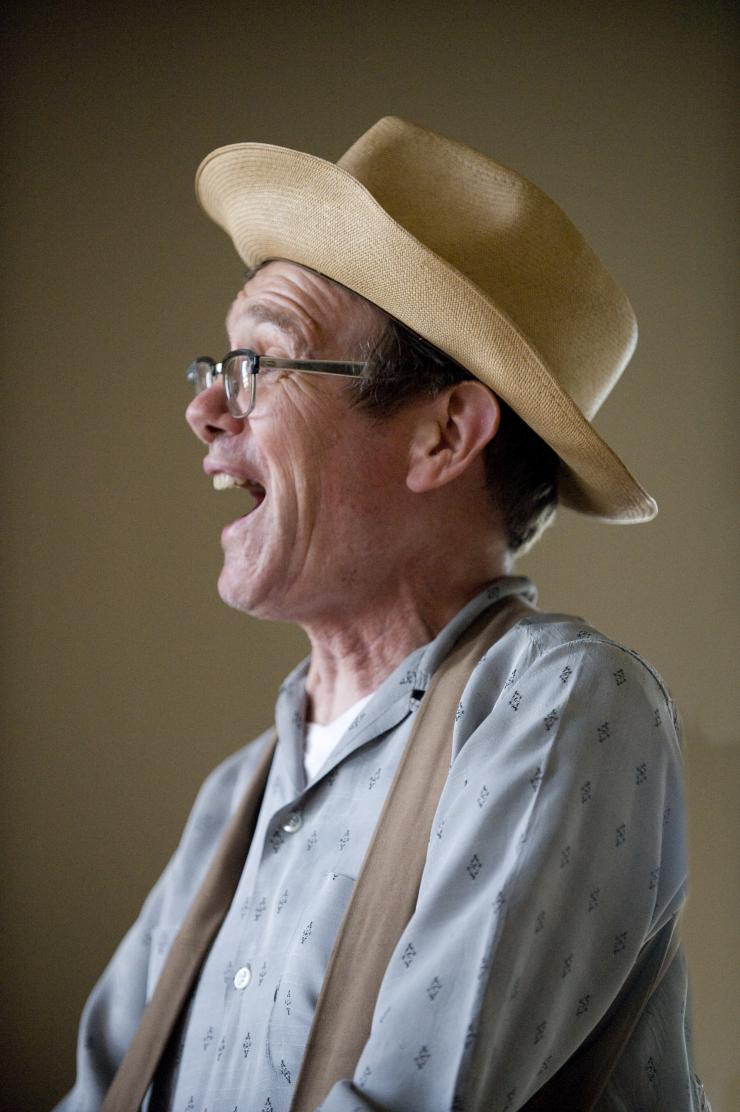
As testament of the third and final stage of prayer, King shared more about his near death experience. In the moments immediately following his motorcycle accident, he lingered near death on a busy Minneapolis street. While in this liminal state, Kling revealed that he consciously made a decision to live rather than die, even though dying meant that he was “heading for this amazing sense of peace.” Of this decision, he reflected, “I need tension in my life.” Kling admitted that his current post-accident existence proved more full of frustrations and indignities than his life pre-accident. Nonetheless, he shared the revelation that most of his current prayers no longer centered on asking God for things. Rather, with mortality questioned and a renewed purpose in life granted through his sufferings, Kling celebrated what he called the third level of prayerfulness: thankfulness and gratitude.
When the evening finished, the hundred or so captivated audience members showed our appreciation with a standing ovation, a rare feat in this taciturn town. Seduced by an impish and treasured Minnesotan bard, the audience experienced the undiluted essence of theatre: a single, humble artist reminding us that stories live everywhere around us. If properly recognized and retold, these stories possess the power to make us laugh and cry. Occasionally, these stories can heal and guide us on our collective journey toward becoming wiser versions of ourselves.

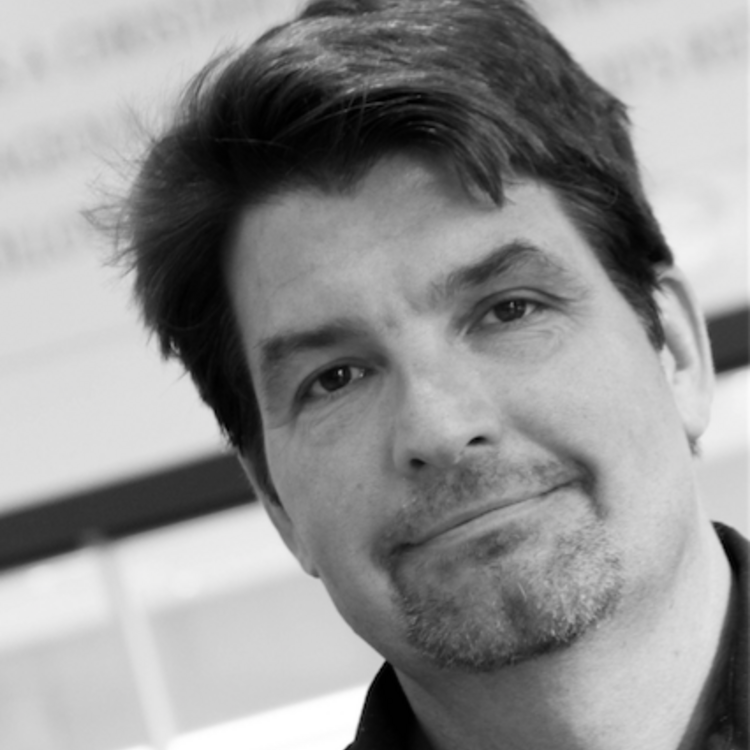
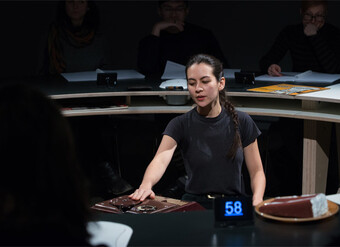

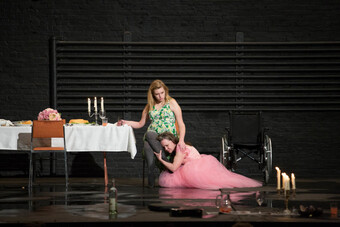

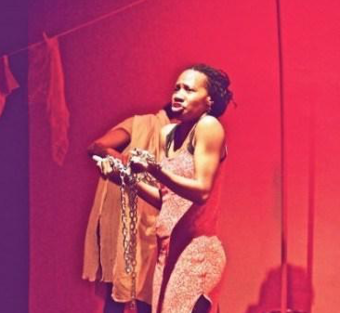

Comments
The article is just the start of the conversation—we want to know what you think about this subject, too! HowlRound is a space for knowledge-sharing, and we welcome spirited, thoughtful, and on-topic dialogue. Find our full comments policy here
Kevin Kling is in an inspiration, not only to those who find themselves in a sudden disability, but to anyone who has suffered a life shock and wonders how to overcome it. It didn't take long for Kevin to get right back on that horse - perhaps a bit more physically limited, but with a renewed sense of determination and continued love of live performance. One thing's for sure. He has the best sense of humor of anyone I've ever met. Thank God he's still sharing his stories with audiences across the country and on the radio. This country needs him now, more than ever.
I knew Kevin in the way back when he toured with a group called BAD JAZZ. I have lost touch with him for many many years and it is great to know he is still creating magic. Thanks for the wonderful recounting of his performance. If you see him again, say hi.
I will, Mark. I chatted briefly with him after the show. He was gracious and witty, as would be expected.